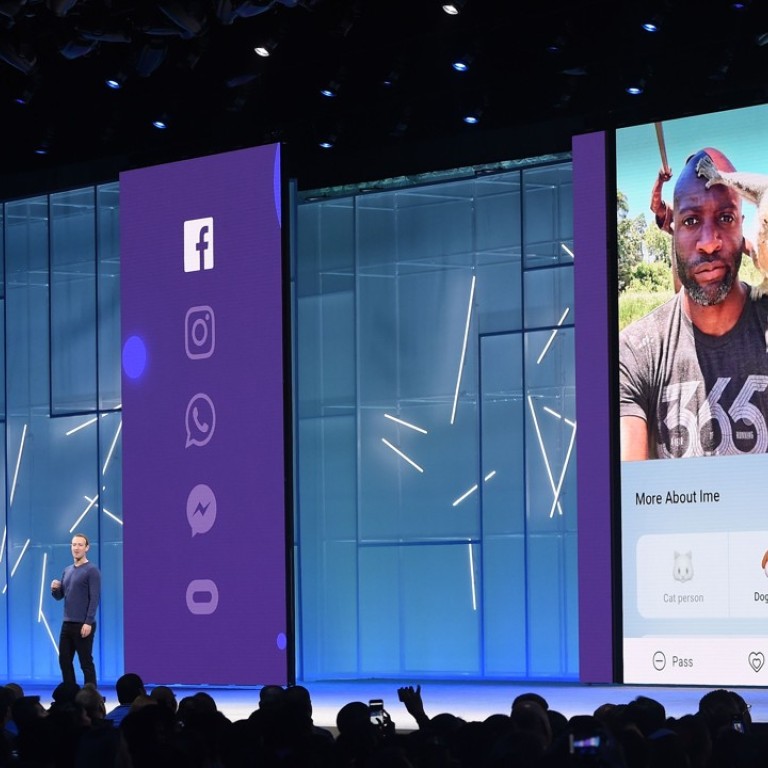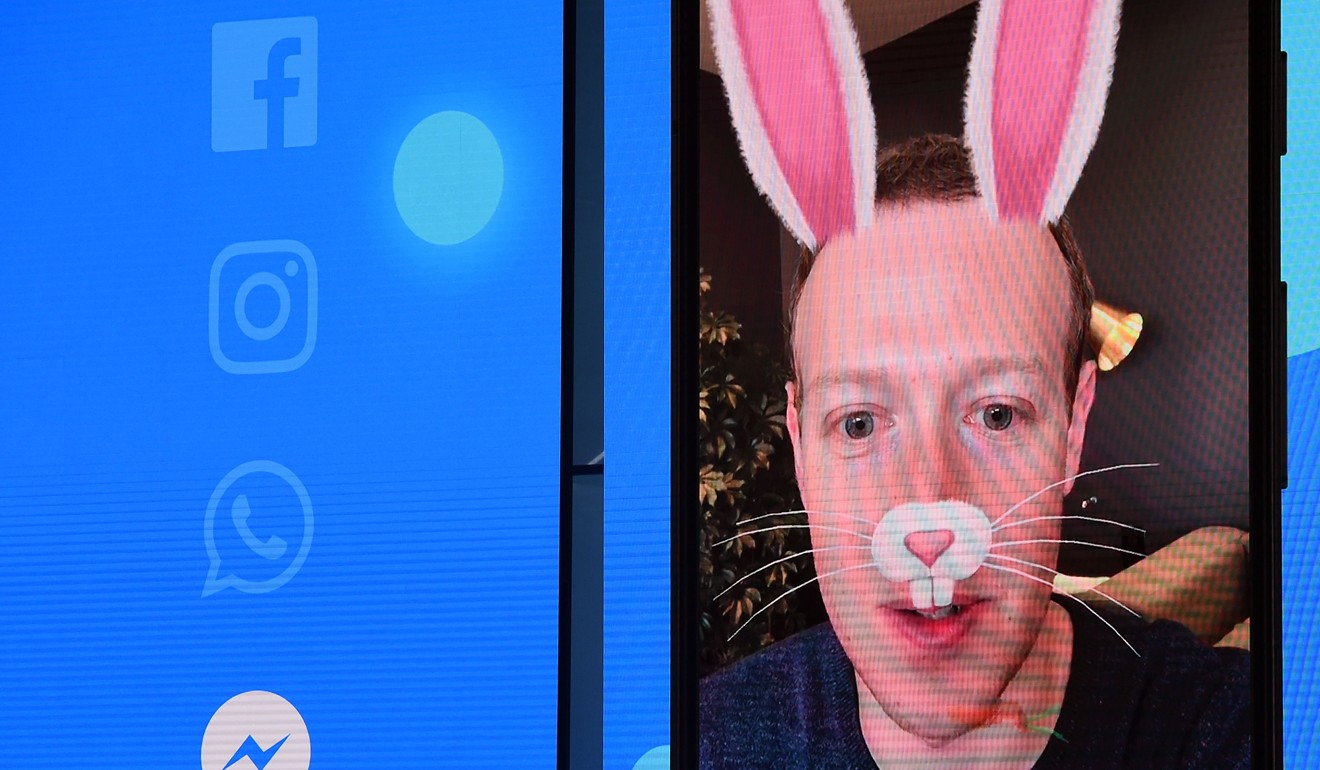
More than friends: Facebook announces dating app for ‘meaningful relationships, not just hookups’
Shares in online dating giant Match plunge as Zuckerberg reveals ‘opt-in’ dating feature for Facebook
Facebook is launching a new dating app on the social media platform, its CEO, Mark Zuckerberg, announced at an annual developer conference on Tuesday, unveiling a feature designed to compete with popular services like Tinder.
Speaking in front of a packed crowd in San Jose, Zuckerberg described the new dating feature as a tool to build “real long-term relationships – not just hookups”.
“We want Facebook to be somewhere where you can start meaningful relationships,” he continued. “We’ve designed this with privacy and safety in mind from the beginning.”
The announcement sparked gasps from the crowd and seemed to attract the most interest from the audience during Zuckerberg’s short speech, which focused on the company’s widening privacy scandal, new safeguards meant to protect users’ data and misinformation and fake news on the site.

Cox showed a user’s hypothetical dating profile, which he said would be separate from an individual’s regular profile, accessed in a different section of the site. The dating feature would use only a first name and only be visible to those using the service, not an individual’s Facebook friends. The feature would not show up in the news feed, he added.
We want Facebook to be somewhere where you can start meaningful relationships
Cox said users of this feature could browse and “unlock” local events and message others planning to attend. If a potential date responded, the two would then connect via a text messaging feature that is not connected to WhatsApp or Facebook Messenger.
“We like this by the way because it mirrors the way people actually date, which is usually at events and institutions they’re connected to,” Cox said. “We hope this will help more folks meet and hopefully find partners.”
The sample profiles displayed at the conference resembled some basic features of Tinder.
Shares of Match, the company that owns Tinder, OkCupid and Match.com, fell by 21 per cent after Zuckerberg announced the new feature, according to Bloomberg.
Match and Tinder did not immediately respond to requests for comment. A spokesperson for Bumble, another dating app that recently stopped requiring users to log in through Facebook, said the company was “thrilled when we saw today’s news”.
“Our executive team has already reached out to Facebook to explore ways to collaborate. Perhaps Bumble and Facebook can join forces to make the connecting space even more safe and empowering,” the statement added.
The CEO noted that one in three marriages in the US now started online. He said couples who met on Facebook have repeatedly thanked him over the years.
Zuckerberg said: “These are some of the moments that I’m really proud of what we’re doing. I know that we’re making a positive difference in people’s lives.”
The announcement of the dating feature came after Zuckerberg acknowledged that it has been a particularly “intense” year for the company, following revelations that millions of Americans’ personal data was harvested from Facebook and improperly shared with the political consultancy Cambridge Analytica.

